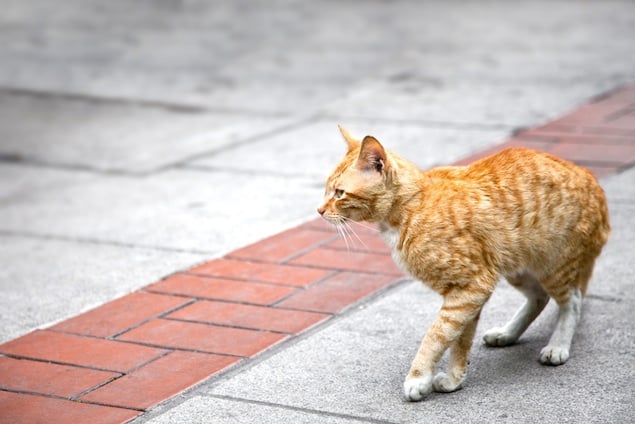Have a question you’d like to ask a vet? Send your query to pets@washingtonian.com with the subject line “Vet Q.”
Q: Our cat likes to go outside at night. We try to call her back before we go to bed; sometimes she comes, sometimes not. My wife and I always argue about whether to put a lot of effort into getting her to come back in. My wife thinks it’s irresponsible to not go hunting for her if it is too cold. What I want to know is, how cold is too cold to let a cat stay out overnight?

Dr. Chris Miller, AtlasVet DC: First things first, letting your cat outside at all is a big decision. Cats that spend unsupervised time out of doors are exposed to a variety of potential dangers, not just the weather. Other outdoor cats can pick fights to defend their turf or spread potentially fatal infectious diseases, and if your cat hasn’t been spayed or neutered, they can end up helping contribute to the feral cat population. Cars, parasites, and wild animals are all problems of the outside world that can threaten your cat. If you weigh these options and elect to allow your pet to explore outside, make sure to discuss additional vaccinations, preventive medications and annual testing with your veterinarian.
So if your cat goes outside, how cold is too cold? Cats are pretty well adapted for cold weather, but when the temperature dips below freezing they are susceptible to hypothermia and frostbite. During periods of cold weather, cats will go looking for a warm place to hunker down. Building an outside shelter for a cat can be an inexpensive and fun project for the family. The shelter should be large enough that the cat can turn around in it, and can be constructed of wood or with plastic bins with holes cut in the side for an entrance. Elevating the structure off the ground and providing warm bedding inside will help ensure your feline friend can retreat to safety from the bitter cold. Also, a safe electric heat source can be added for the most luxurious of shelters. Without a safe haven of warmth, cats will go looking for other warm, covered places such as under the hoods of cars. Here, they are protected from the elements and the engine can put off heat hours after it has been turned off, but if the car is started while they are hidden away, they can be severely injured or even killed.
The best way to protect your cat from cold weather is to keep them inside your house or provide an outdoor kitty cottage. Understanding the risks of letting your cat outside and helping minimize them by preparing a shelter, discussing preventative measures with your veterinarian, and getting the whole family involved with the care of the family feline are all helpful in decreasing the dangerous variables of the outside world.

















